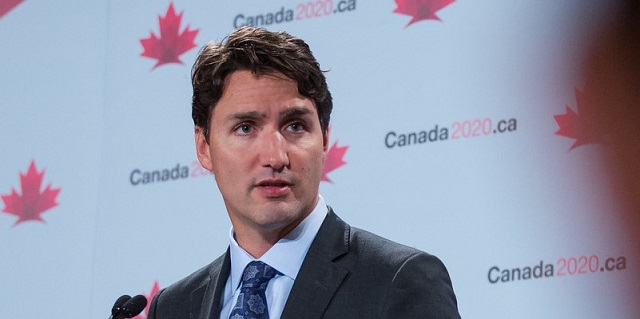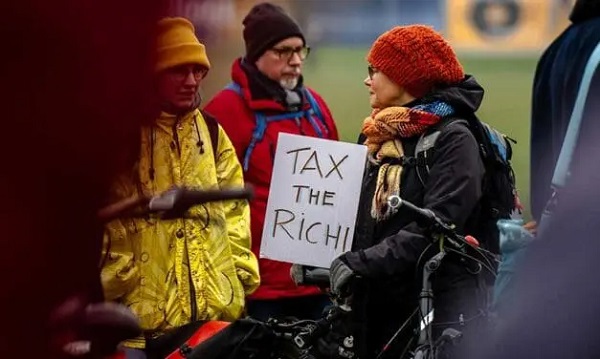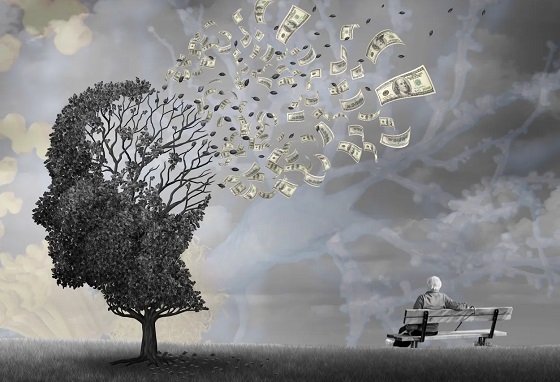Economy
Prime minister’s misleading capital gains video misses the point

From the Fraser Institute
By Jake Fuss and Alex Whalen
According to a 2021 study published by the Fraser Institute, 38.4 per cent of those who paid capital gains taxes in Canada earned less than $100,000 per year, and 18.3 per cent earned less than $50,000. Yet in his video, Prime Minister Trudeau claims that his capital gains tax hike will affect only the richest “0.13 per cent of Canadians”
This week, Prime Minister Trudeau released a video about his government’s decision to increase capital gains taxes. Unfortunately, he made several misleading claims while failing to acknowledge the harmful effects this tax increase will have on a broad swath of Canadians.
Right now, individuals and businesses who sell capital assets pay taxes on 50 per cent of the gain (based on their full marginal rate). Beginning on June 25, however, the Trudeau government will increase that share to 66.7 per cent for capital gains above $250,000. People with gains above that amount will again pay their full marginal rate, but now on two-thirds of the gain.
In the video, which you can view online, the prime minister claims that this tax increase will affect only the “very richest” people in Canada and will generate significant new revenue—$20 billion, according to him—to pay for social programs. But economic research and data on capital gains taxes reveal a different picture.
For starters, it simply isn’t true that capital gains taxes only affect the wealthy. Many Canadians who incur capital gains taxes, such as small business owners, may only do so once in their lifetimes.
For example, a plumber who makes $90,000 annually may choose to sell his business for $500,000 at retirement. In that year, the plumber’s income is exaggerated because it includes the capital gain rather than only his normal income. In fact, according to a 2021 study published by the Fraser Institute, 38.4 per cent of those who paid capital gains taxes in Canada earned less than $100,000 per year, and 18.3 per cent earned less than $50,000. Yet in his video, Prime Minister Trudeau claims that his capital gains tax hike will affect only the richest “0.13 per cent of Canadians” with an “average income of $1.4 million a year.”
But this is a misleading statement. Why? Because it creates a distorted view of who will pay these capital gains taxes. Many Canadians with modest annual incomes own businesses, second homes or stocks and could end up paying these higher taxes following a onetime sale where the appreciation of their asset equals at least $250,000.
Moreover, economic research finds that capital taxes remain among the most economically damaging forms of taxation precisely because they reduce the incentive to innovate and invest. By increasing them the government will deter investment in Canada and chase away capital at a time when we badly need it. Business investment, which is crucial to boost living standards and incomes for Canadians, is collapsing in Canada. This tax hike will make a bad economic situation worse.
Finally, as noted, in the video the prime minister claims that this tax increase will generate “almost $20 billion in new revenue.” But investors do not incur capital gains taxes until they sell an asset and realize a gain. A higher capital gains tax rate gives them an incentive to hold onto their investments, perhaps until the rate is reduced after a change in government. According to economists, this “lock-in” effect can stifle economic activity. The Trudeau government likely bases its “$20 billion” number on an assumption that investors will sell their assets sooner rather than later—perhaps before June 25, to take advantage of the old inclusion rate before it disappears (although because the government has not revealed exactly how the new rate will apply that seems less likely). Of course, if revenue from the tax hike does turn out to be less than anticipated, the government will incur larger budget deficits than planned and plunge us further into debt.
Contrary to Prime Minister Trudeau’s claims, raising capital gains taxes will not improve fairness. It’s bad for investment, the economy and the living standards of Canadians.
Authors:
Business
Canadians love Nordic-style social programs as long as someone else pays for them

This article supplied by Troy Media.
 By Pat Murphy
By Pat Murphy
Generous social programs come with trade-offs. Pretending otherwise is political fiction
Nordic societies fund their own benefits through taxes and cost-sharing. Canadians expect someone to foot the bill
Like Donald Trump, one of my favourite words starts with the letter “T.” But where Trump likes the word “tariff,” my choice is “trade-off.” Virtually everything in life is a trade-off, and we’d all be much better off if we instinctively understood that.
Think about it.
If you yield to the immediate pleasure of spending all your money on whatever catches your fancy, you’ll wind up broke. If you regularly enjoy drinking to excess, be prepared to pay the unpleasant price of hangovers and maybe worse. If you don’t bother to acquire some marketable skill or credential, don’t be surprised if your employment prospects are limited. If you succumb to the allure of fooling around, you may well lose your marriage. And so on.
Failing to understand trade-offs also extends into political life. Take, for instance, the current fashion for anti-capitalist democratic socialism. Pushed to explain their vision, proponents will often make reference to the Nordic countries. But they exhibit little or no understanding of how these societies actually work.
As American economist Deirdre Nansen McCloskey notes, “Sweden is pretty much as ‘capitalistic’ as is the United States. If ‘socialism’ means government ownership of the means of production, which is the classic definition, Sweden never qualified.” The central planning/government ownership model isn’t the Swedish way.
What the Nordics do have, however, is a robust social safety net. And it’s useful to look at how they pay for it.
J.P. Morgan’s Michael Cembalest is a man who knows his way around data. He puts it this way: “Copy the Nordic model if you like, but understand that it entails a lot of capitalism and pro-business policies, a lot of taxation on middle-class spending and wages, minimal reliance on corporate taxation and plenty of co-pays and deductibles in its health care system.”
For instance, take the kind of taxes that are often derided as undesirably regressive—sales taxes, social security taxes and payroll taxes. In Sweden, they account for a whopping 27 per cent of gross domestic product. And some 15 per cent of health expenditures are out of pocket.
Charles Lane—formerly with the Washington Post, now with The Free Press—is another who pulls no punches: “Nordic countries are generous, but they are not stupid. They understand there is no such thing as ‘free’ health care, and that requiring patients to have at least some skin in the game, in the form of cost-sharing, helps contain costs.”
In effect, Nordic societies have made an internal bargain. Ordinary people are prepared to fork over large chunks of their own money in return for a comprehensive social safety net. They’re not expecting the good stuff to come to them without a personal cost.
Scandinavians obviously understand the concept of trade-offs, a dimension that seems to be absent from much of the North American discussion. Instead of Nordic-style pragmatism, spending ideas on this side of the Atlantic are floated on the premise of having someone else pay. And the electorally prized middle class is to be protected at all costs.
In the aftermath of Zohran Mamdami’s New York City win, journalist Kevin Williamson had a sobering reality check: “Class warfare isn’t how they roll in Scandinavia. Oslo is a terrific place to be a billionaire—Copenhagen and Stockholm, too … what’s radically different about the Scandinavians is not how they tax the very high-income but how they tax the middle.”
Taxation propensities aside, Nordic societies are different from the United States and Canada.
Denmark, for instance, is very much a “high-trust” society, defined as a place “where interpersonal trust is relatively high and ethical values are strongly shared.” It’s often been said that it works the way it does because it’s full of Danes, which is broadly true—albeit less so than it was 40 years ago.
Denmark, though, has no interest in multiculturalism as we’ve come to know it. Although governed from the centre-left, there’s no state-sponsored focus on systemic discrimination or diversity representation. Instead, the emphasis is on social cohesion and conformity. If you want to create a society like Denmark, it helps to understand the dynamics that make it work.
Reality intrudes on all sorts of other issues. For example, there’s the way in which public discourse is disfigured on the question of climate change and the need to pursue aggressive net-zero policies.
Asked in the abstract, people are generally favourable, which is then touted as evidence of strong public support. But when subsequently asked how much they’re personally prepared to pay to accomplish these ambitious goals, the answer is often little or nothing.
If there’s one maxim we should be taught from childhood, it’s this: there are no panaceas, only trade-offs.
Troy Media columnist Pat Murphy casts a history buff’s eye at the goings-on in our world. Never cynical – well, perhaps a little bit.
Troy Media empowers Canadian community news outlets by providing independent, insightful analysis and commentary. Our mission is to support local media in helping Canadians stay informed and engaged by delivering reliable content that strengthens community connections and deepens understanding across the country.
Business
Higher carbon taxes in pipeline MOU are a bad deal for taxpayers

The Canadian Taxpayers Federation is criticizing the Memorandum of Understanding between the federal and Alberta governments for including higher carbon taxes.
“Hidden carbon taxes will make it harder for Canadian businesses to compete and will push Canadian entrepreneurs to shift production south of the border,” said Franco Terrazzano, CTF Federal Director. “Politicians should not be forcing carbon taxes on Canadians with the hope that maybe one day we will get a major project built.
“Politicians should be scrapping all carbon taxes.”
The federal and Alberta governments released a memorandum of understanding. It includes an agreement that the industrial carbon tax “will ramp up to a minimum effective credit price of $130/tonne.”
“It means more than a six times increase in the industrial price on carbon,” Prime Minister Mark Carney said while speaking to the press today.
Carney previously said that by “changing the carbon tax … We are making the large companies pay for everybody.”
A Leger poll shows 70 per cent of Canadians believe businesses pass most or some of the cost of the industrial carbon tax on to consumers. Meanwhile, just nine per cent believe businesses pay most of the cost.
“It doesn’t matter what politicians label their carbon taxes, all carbon taxes make life more expensive and don’t work,” Terrazzano said. “Carbon taxes on refineries make gas more expensive, carbon taxes on utilities make home heating more expensive and carbon taxes on fertilizer plants increase costs for farmers and that makes groceries more expensive.
“The hidden carbon tax on business is the worst of all worlds: Higher prices and fewer Canadian jobs.”
-

 National1 day ago
National1 day agoMedia bound to pay the price for selling their freedom to (selectively) offend
-

 Artificial Intelligence2 days ago
Artificial Intelligence2 days ago‘Trouble in Toyland’ report sounds alarm on AI toys
-

 Daily Caller2 days ago
Daily Caller2 days agoTom Homan Predicts Deportation Of Most Third World Migrants Over Risks From Screening Docs
-

 Energy2 days ago
Energy2 days agoCanadians will soon be versed in massive West Coast LPG mega-project
-

 Daily Caller8 hours ago
Daily Caller8 hours agoTech Mogul Gives $6 Billion To 25 Million Kids To Boost Trump Investment Accounts
-

 Business8 hours ago
Business8 hours agoCanada’s future prosperity runs through the northwest coast
-

 Business1 day ago
Business1 day agoWhy Isn’t There a Cure for Alzheimer’s Disease?
-

 Bruce Dowbiggin1 day ago
Bruce Dowbiggin1 day agoSometimes An Ingrate Nation Pt. 2: The Great One Makes His Choice












